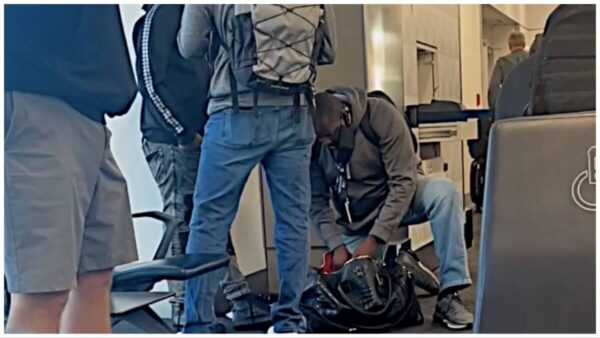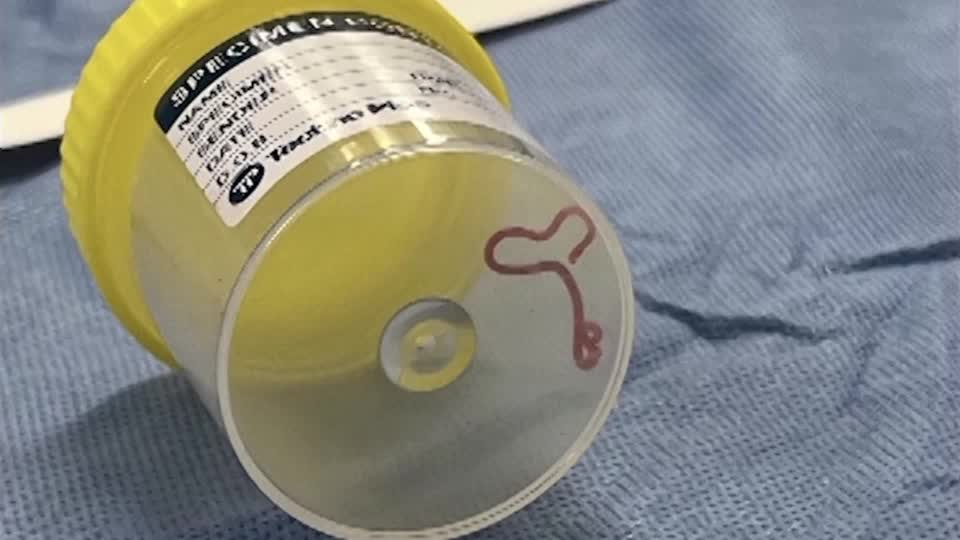Catching many travelers off guard is a new practice being stealthily carried out by drug agents dressed as plainclothes passengers at the Atlanta airport who are randomly searching people they suspect are transporting drug money.
Atlanta News First Investigates reporters tailed Drug and Enforcement Administration (DEA) task force officers at the Hartsfield-Jackson International Airport as they worked to track down potential drug mules making their way through various terminals. Atlanta Black Star also covered the claim of comedians Eric André and Clayton English, who alleged they were racially profiled by police and questioned about drugs at the airport on separate occasions in 2021 and 2020.
Unsuspecting travelers never realized these were federal drug agents until they were approached by one at their gates.
“He just approached me, and he asked me for my ID,” film director Tabari Sturdivant told Atlanta News First. “He didn’t state who he was. He just asked me for ID, and I thought he was a Delta agent. He had airport credentials on, and so I gave it to him immediately.”
Trending Today:
Sturdivant, an Atlanta-based film director, was heading to L.A. for a film project when a group of task force officers walked up to him and requested to search his carry-on luggage in front of other passengers at his gate.
The officers didn’t find anything illegal, but during the search, they asked if he was high or if he was carrying drugs and cash.
It’s not just the DEA that’s walking around Hartsfield-Jackson in plain clothes. Clayton County narcotics officers are also in on the action because some are reportedly cross-sworn as DEA task force officers.
Hollywood actors and comedians Jean Elie, André, and English were stopped by the agents on a jet bridge of separate ATL to LAX flights and searched their belongings in front of other passengers in 2021 and 2020.
Flights from Atlanta to Los Angeles are routinely monitored by these officers, who call them “known drug trafficking routes.”
The suit was filed by André and English, who not only claimed the searches were “neither random nor consensual,” they also included Clayton County data that revealed 56 percent of jet bridge stops involved Black passengers, and 68 percent were people of color.
The DEA stopped collecting race data 20 years ago. A federal judge dismissed their lawsuit last month, arguing in part that the two men should have realized they were free to walk away and not engage with the officers in the jetway. The men are appealing the dismissal.
While the searches may not be popular, they’re certainly profitable.
Clayton County records and federal documents show that drug agents find large amounts of cash on passengers at departing gates rather than drugs. Agents have seized millions of dollars, and while travelers aren’t arrested, their money is often administratively forfeited.
Like most civil forfeiture cases, people who have their money taken must prove in court that their money isn’t connected to drug trafficking or other illegal activity. Seizures like these don’t just happen at the Atlanta airport. They’ve taken place at airports across the country.
Most travelers are unclear of their rights when it comes to airport searches. In order to be admitted entry to the airport’s gated areas, passengers must submit themselves to TSA security screenings. That’s a fact.
However, the random searches by DEA agents at the Atlanta airport give passengers pause, but it should be noted that they’re not mandated. The DEA officially calls its stops and searches at airport gates “cold consent encounters,” and passengers are free to end the encounter and walk away if they’d like.
However, others who have been searched at their boarding gates said they felt “coerced,” “pressured,” or gave consent “under duress.”
One passenger recorded one of these encounters that showed a DEA agent using some coercive tactics.
Never miss a story — sign up for ATLANTA BLACK STAR’S free daily newsletters to stay up-to-date on the latest developments, from top news headlines to celebrity news.
“You’re either going to sign a consent form saying that you’re allowing us to search [your bags],” the drug agent is heard telling the passenger on the recording, “or I’m going to detain them, run my dog on it, and get a search warrant.”
The passenger immediately agreed to sign the consent form.
No drugs were found, but the agents did discover money, which they seized, Atlanta News First reported. The passenger was allowed to board his flight, and the federal government kept the money. The passenger has since filed a claim with the federal court in Atlanta.



